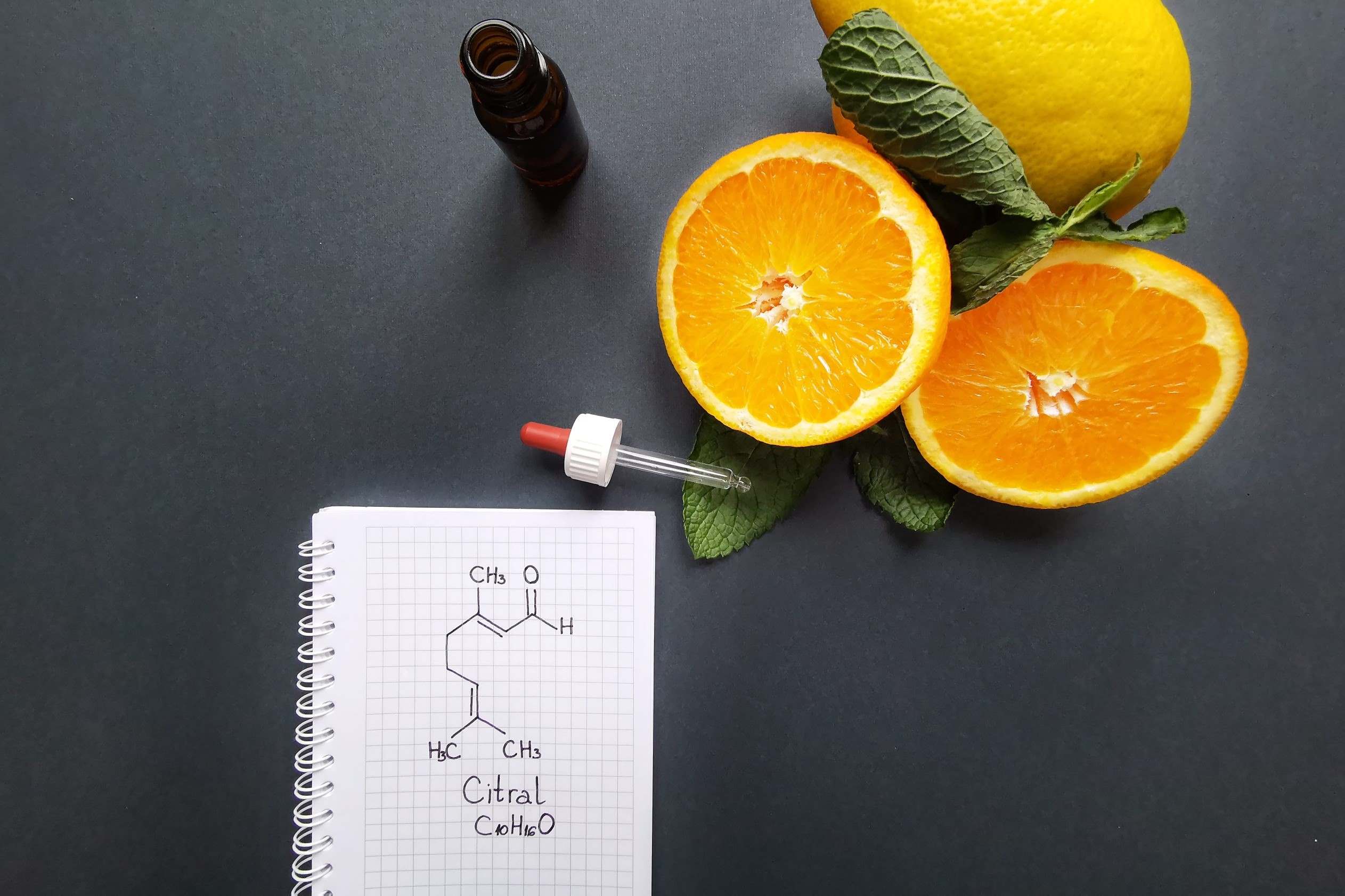
Citral is a fascinating compound found in the essential oils of various plants, including lemongrass, lemon myrtle, and orange. This natural substance is known for its strong lemon scent, making it a popular choice in perfumes, flavorings, and cleaning products. But what exactly makes citral so special? Citral is not just about its refreshing aroma; it also boasts antimicrobial and anti-inflammatory properties. These benefits make it a valuable ingredient in both traditional and modern medicine. Whether you're curious about its chemical structure or its practical applications, citral has a lot to offer. Ready to dive into 40 intriguing facts about this versatile compound? Let's get started!
Key Takeaways:
- Citral, found in lemongrass and citrus fruits, is a versatile compound used in perfumes, flavorings, and even health products due to its refreshing scent and potential health benefits.
- From its role in aromatherapy to its potential health benefits, citral is a fascinating compound with a strong lemon scent, widely used in everyday products and ongoing research for its diverse properties.
What is Citral?
Citral is a fascinating compound found in nature. It's known for its strong lemon scent and is widely used in various industries. Let's dive into some intriguing facts about citral.
-
Citral is a mixture of two isomers: geranial and neral. These isomers give citral its distinctive lemon aroma.
-
This compound is commonly found in the oils of lemongrass, lemon myrtle, and lemon tea-tree.
-
Citral is used extensively in the perfume industry due to its fresh, citrusy scent.
-
In the food industry, citral is a popular flavoring agent, adding a lemony taste to various products.
-
Citral has antimicrobial properties, making it useful in preserving food and in some medicinal applications.
Citral in Nature
Citral isn't just a lab creation; it occurs naturally in several plants. Here are some interesting facts about its natural occurrence.
-
Lemongrass contains up to 80% citral, making it one of the richest natural sources.
-
Lemon myrtle leaves have a high concentration of citral, often exceeding 90%.
-
Citrus fruits like lemons and oranges also contain citral, though in smaller amounts compared to lemongrass and lemon myrtle.
-
Basil and coriander are herbs that contain trace amounts of citral.
-
Verbena and lemon balm are other plants where citral can be found.
Uses of Citral
Citral's versatility makes it valuable in various industries. Let's explore some of its common uses.
-
In aromatherapy, citral is used for its uplifting and refreshing scent.
-
Cleaning products often include citral for its pleasant fragrance and antimicrobial properties.
-
Cosmetics like lotions and creams use citral for its scent and potential skin benefits.
-
Pharmaceuticals sometimes incorporate citral for its antimicrobial and anti-inflammatory properties.
-
Insect repellents often contain citral, as it can deter mosquitoes and other pests.
Health Benefits of Citral
Citral isn't just about scent and flavor; it also offers some health benefits. Here are a few notable ones.
-
Citral has anti-inflammatory properties, which can help reduce swelling and pain.
-
It exhibits antioxidant activity, helping to neutralize harmful free radicals in the body.
-
Citral may have anticancer properties, with some studies suggesting it can inhibit the growth of certain cancer cells.
-
It has antifungal properties, making it effective against various fungal infections.
-
Citral can help improve digestion by stimulating the production of digestive enzymes.
Citral in Research
Scientists are continually exploring citral's potential. Here are some exciting research findings.
-
Studies have shown that citral can reduce anxiety and promote relaxation in animal models.
-
Research indicates that citral may help lower blood pressure by relaxing blood vessels.
-
Citral has been studied for its potential to improve cognitive function and memory.
-
Some research suggests that citral can enhance the effectiveness of certain antibiotics.
-
Citral is being investigated for its potential to treat diabetes by improving insulin sensitivity.
Citral in Everyday Products
You might be surprised at how often you encounter citral in daily life. Here are some common products that contain citral.
-
Shampoos and conditioners often include citral for its fresh scent.
-
Toothpaste and mouthwash may contain citral for its flavor and antimicrobial properties.
-
Candles and air fresheners use citral to create a pleasant, lemony aroma.
-
Detergents and fabric softeners often have citral for its fragrance.
-
Hand sanitizers sometimes include citral for its antimicrobial benefits.
Fun Facts About Citral
Let's wrap up with some fun and lesser-known facts about citral.
-
Citral is also known as lemonal due to its strong lemon scent.
-
It is used in the synthesis of vitamin A, an essential nutrient for vision and immune function.
-
Citral can be used to mask unpleasant odors in various products.
-
It is a key ingredient in artificial lemon flavoring.
-
Citral is sometimes used in pesticides due to its insect-repelling properties.
-
The chemical formula for citral is C10H16O.
-
Citral can be synthesized in the lab, but natural extraction is more common.
-
It is a colorless to pale yellow liquid at room temperature.
-
Citral has a boiling point of around 228°C (442°F).
-
The molecular weight of citral is 152.23 g/mol.
Final Thoughts on Citral
Citral, a key component in many essential oils, offers a wealth of benefits. Found in lemongrass, lemon myrtle, and other plants, this compound boasts a strong lemon scent. It's widely used in perfumes, flavorings, and even cleaning products. Beyond its pleasant aroma, citral has antimicrobial, anti-inflammatory, and antioxidant properties. These qualities make it valuable in both traditional and modern medicine.
Research suggests citral may help with conditions like inflammation and infections. Its potential in cancer treatment is also being explored. However, it's important to use citral with care, as it can cause skin irritation in some people. Always dilute it properly and do a patch test before using it on your skin.
Understanding citral's benefits and uses can help you make informed choices about incorporating it into your daily life.
Frequently Asked Questions
Was this page helpful?
Our commitment to delivering trustworthy and engaging content is at the heart of what we do. Each fact on our site is contributed by real users like you, bringing a wealth of diverse insights and information. To ensure the highest standards of accuracy and reliability, our dedicated editors meticulously review each submission. This process guarantees that the facts we share are not only fascinating but also credible. Trust in our commitment to quality and authenticity as you explore and learn with us.


